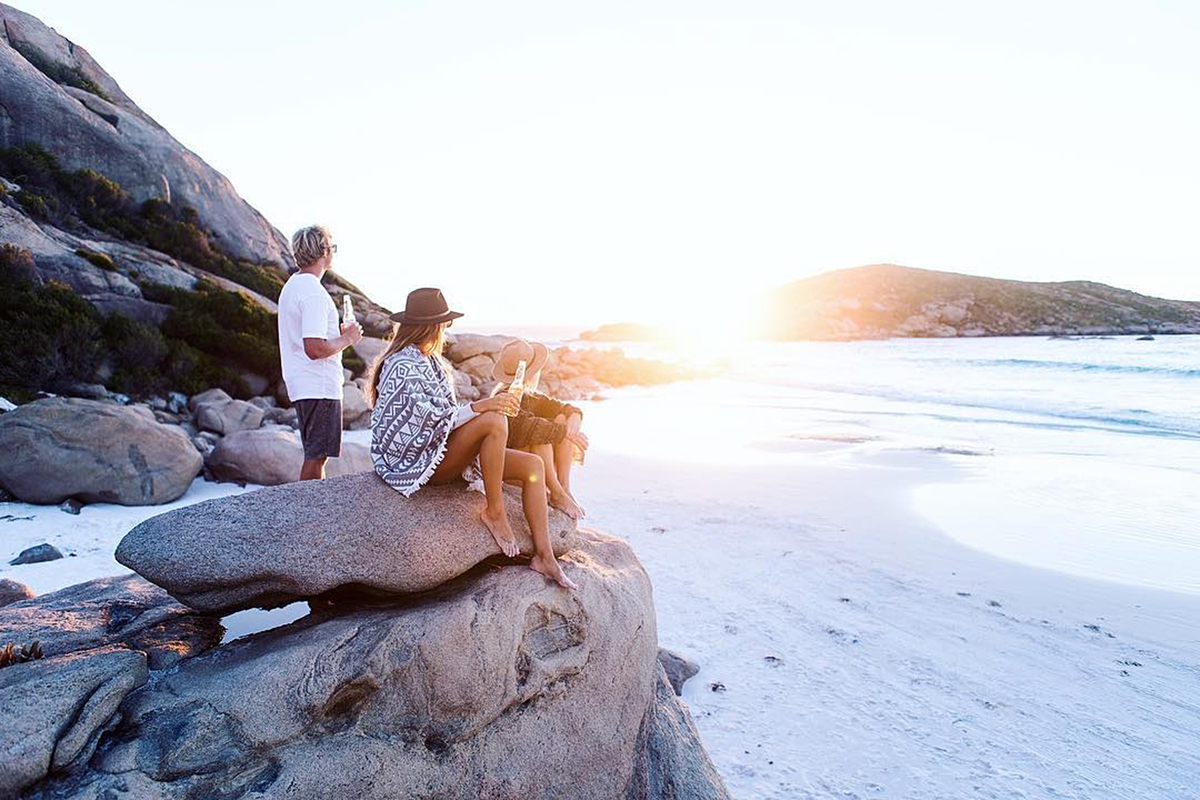
Author: Esperance Tide
Published: February 27, 2019
Over the silly season, there is an increase in social activities, parties, gigs, family shindigs, end of year work blowouts and backyard barbies. And while it can be a wonderful time of year, it can also be a time of excess, especially when it comes to alcohol. Many of us ‘grown-ups’ enjoy drinking a few alcoholic beverages here and there, but how much is too much? It’s a common question, especially when you’re trying to determine if your own drinking habits are worrying. Here are a few things to consider.
Do the majority of your plans involve alcohol?
Whether it’s Christmas lunch, a day at the beach, game night at Emma’s or the basketball grand final, old-mate, booze, consistently bags an invite. Alcohol somehow becomes the key ingredient in any get-together and you start to lose sight of what you were doing in the first place.
What you can do: Do something else or drink something else. Instead of only catching up for a drink, you could always watch a movie, grab a coffee or catch up over a game of tennis. Something that doesn’t necessarily make you feel compelled to drink. Instead of always going for a grab of an ice-cold beer, try a bottle of kombucha instead. The non-alcoholic alternatives are endless.
Do you feel pressured to drink in social situations?
According to the Alcohol Think Again website, research tells us that even when people intend to drink responsibly, it can be difficult to stick to this plan because getting drunk is often an accepted norm, there is often social pressure to drink and the setting makes it easy to drink large amounts. And, sometimes it can be difficult to find social environments where alcohol is not present.
What you can do: Hit up your non-drinking (or minimal-drinking) mates. Invite them out so you’re not the only one not drinking in the group. When you need to tell friends that you can’t drink or need to drink less, prepare a few standard responses – this may be helpful if people are bugging you to drink more.
Do you set yourself limits but never stick to them?
Have you ever told yourself you were going to have only a drink or two, and before you know it you’ve downed four? When you’re having a good time, it can be hard to keep track of how many drinks you’ve had–we are all guilty of it. But not knowing your limits can have dangerous consequences. It is important to understand what a standard drink is so that when you are drinking you can manage how much alcohol you consume.
What you can do: Rather than having a few drinks before eating when out to dinner, wait until dinner is served and aim to only have two standard drinks. If going to a friends’ house, take less alcohol with you then you usually would and make every second drink a non-alcoholic one.
Do you reach for a drink after a long day at work?
It’s a routine plenty of us get stuck in. You come home from a stressful day at work, kick the shoes off and pour yourself a big ol’ glass of wine. Sure, this is a nice way to relax and mark the end of a day, however, when that one drink turns into a whole bottle, things can start to get out of control.
What you can do: Change your after-work routine. Start putting the kettle on when you get home, instead of going straight to the fridge. Distract yourself by performing some yoga poses or taking the dog for a walk down the beach–physical exercise can help relieve tension and relax your mind.
What is a standard drink?
In Australia, your standard drink is any drink containing 10 grams of alcohol, regardless of glass size or alcohol type. And because alcoholic beverages are sold and served in many different sizes, this can make it difficult to know how many standard drinks are in each drink you consume. Whilst you’ve been thinking you’ve only had one, that large wine glass of red you’ve been pouring on the reg could actually be four.
Head to the Alcohol Think Again website for more information on the standard drink guidelines, as well as more ways to reduce your alcohol intake. If you are worried about the amount you are drinking and would like help to cut down contact HOPE Community Services on 9071 5169 for a free counselling session.